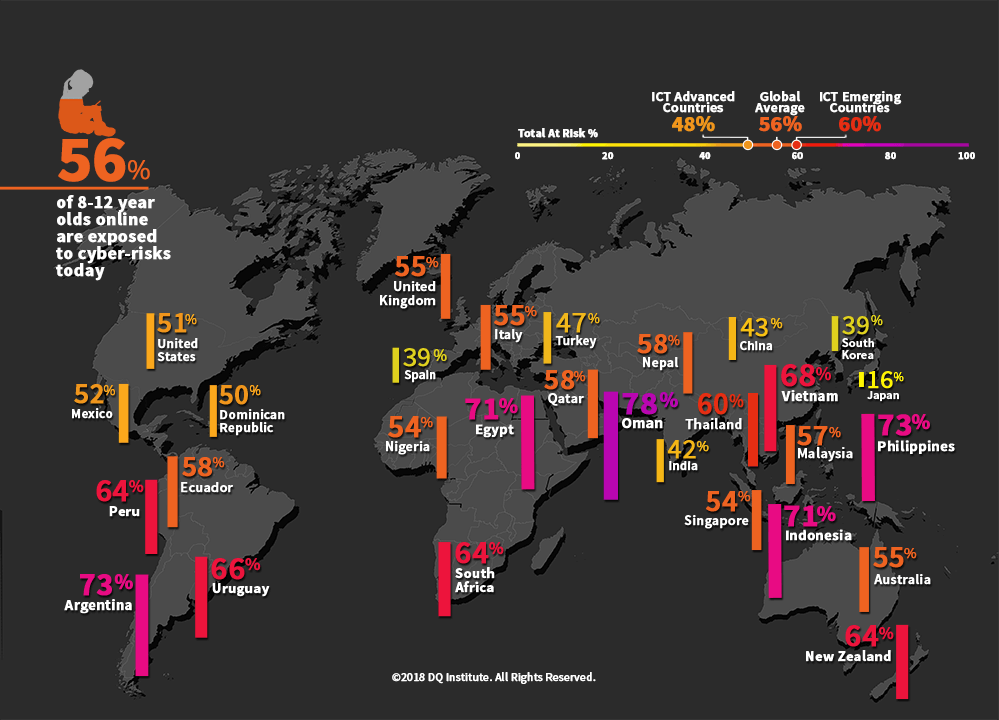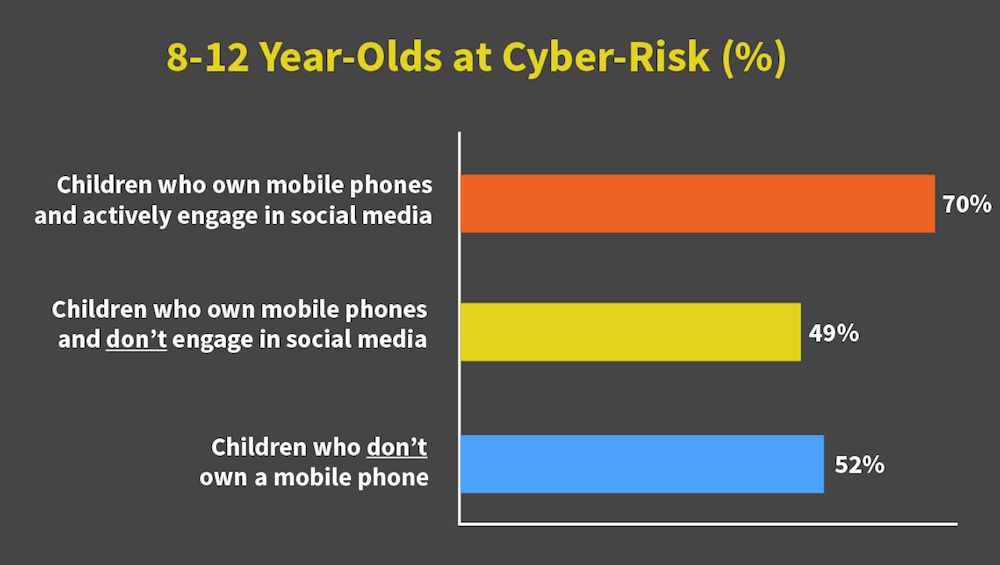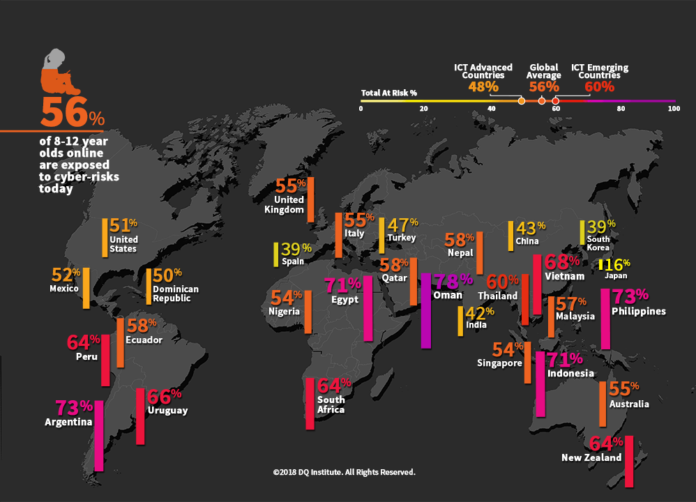SOUTHEAST Asian nations are among the worst in the world for child exposure to online abuse and cyber-risks, according to a new report from an international think tank.
The new 2018 Impact Report from DQ Institute found that 73 percent of 8 to 12 year olds in the Philippines are exposed to cyber-risks, coming second only to Oman as the worst of the 29 countries surveyed.
Indonesian children were also at risk, with 71 percent experiencing at least one major cyber-risk, including cyberbullying, video game addiction, offline meetings, and online sexual behaviours.
In Vietnam, 68 percent were at risk.
SEE ALSO: China taking steps to loosen its regulations around digital content
While Thailand, Malaysia, and Singapore performed better, the number of children at risk was still high at 60 percent, 57 percent, and 54 percent respectively.
The report, released Wednesday, examines the precarious status of children’s exposure to cyber-risks worldwide, seeks to understand how children become exposed to these risks and how they are affected.
Globally, 56 percent of children were found to be at risk. A figure that DQ says is “tantamount to saying that our children are in the middle of a cyber-risk pandemic.”

DQ Impact Report 2018. Source: DQ Institute
Emerging Information and Communication Technology (ICT) countries – those that have experienced a recent influx in the use of the internet and mobile devices – are the most vulnerable to cyber-risks targeting children.
The study reveals that children from ICT emerging countries are 1.3 times more likely to be involved with cyber-risks compared to those from ICT advanced countries on average. Southeast Asia contains a high number of emerging countries, making it a hotbed for online abuse.
“I think the Philippines is one of the most targeted countries for human trafficking, sexual exploitation through online,” said Ariane Lim, Project Consultant at Assist Asia in the Philippines. “And that’s why it’s very important to safeguard our children from these digital threats”
SEE ALSO: Students across Asia Pacific embrace computer sciences
Burma (Myanmar) has also experienced staggering growth in ICT since it opened up to the telecom industry in 2013. At the time, just six percent of the population had a mobile phone, according to the report. This skyrocketed in the first 18 months to 65 percent of people experiencing internet through their mobile devices.
Currently, the population with a personal phone is 85 percent. But people are unaware of the risks involved, says Ken Tun, CEO of Parami Energy.
“Myanmar people do not know what the Internet is, they only know Facebook,” he told DQ. “There is such low awareness of online challenges and risks that children can have from these platforms.”

DQ Impact Report 2018. Source: DQ Institute
The growth of personal mobile devices among children as young as eight is one of the driving forces behind such high exposure to cyber-risks.
According to the report, the majority of children (60 percent) get their first phone when they’re 10 years old. And when they get these phones, they’re using them to access social media, further increasing the risk of cyber-bullying and unwanted advances.
DQ found that 85 percent of 8 to 12-year olds use social media, even though the legal age they can officially start using most social media applications is 13 years old.
SEE ALSO: Vietnam unleashes 10,000 cyber troopers to combat ‘wrong views’
Globally, the study found 47 percent of 8 to 12 year olds have been victimised through cyber-bullying in the past year. Ten percent were found to have chatted with and met online strangers in real life. Video game addiction affected 11 percent of those surveyed. And 17 percent have been involved in online sexual behaviours.
While the report clarifies that having been exposed to these cyber-risks does not directly indicate that children have received permanent physical or mental harm, it warns that continuous exposure to these risks at an early age poses “a danger to overall development, well-being, relationships, and future opportunities for children.”
With rapid increases in Internet penetration in ICT emerging countries, it is estimated that over 720 million 8 to 12 year olds will be online by 2020, with more than 90 percent of these users from ICT emerging countries.
{“total”:1,”error”:””,”stumbleupon”:0,”pinterest”:0,”linkedin”:0,”facebook_total”:0,”buffer”:1,”twitter”:0,”google”:0,”vk”:0}





